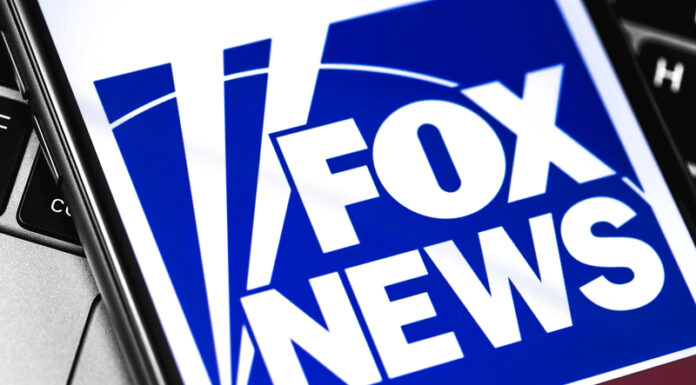President Donald Trump’s approval rating is experiencing a decline at the 100-day milestone of his second term, according to several recent polls. These surveys indicate that his performance is lagging behind that of other 21st-century presidents at a comparable stage in their administrations.
The latest Fox News poll reveals Trump’s approval rating stands at 44%, with a net approval rating of -11 points, calculated by subtracting the 55% disapproval from the 44% approval. This marks a decline from the 49% approval rating he recorded in the March Fox News poll.
More troubling for the president is that his current approval rating is lower than his figures during his first term at the same juncture. At the 100-day mark of his first term, Trump held a 45% approval rating, indicating a weaker performance in his second term.
In comparison to his predecessors, Trump is significantly trailing behind. Joe Biden held a 54% approval rating, Barack Obama had a 62% approval rating, and George W. Bush enjoyed a 63% approval rating at their respective 100-day benchmarks.
In response to the Fox News poll, Trump criticized the network’s polling methodology, stating that the “pollster has gotten me, and MAGA, wrong for years,” as reported by various sources.
The downturn in approval is primarily attributed to economic concerns, which pose a significant challenge for Trump, as the economy was a strong point during his first term. The Reuters/Ipsos poll indicates only 37% of Americans approve of his handling of the economy, with the Fox News poll reporting a similar figure of 38% approval and 56% disapproval.
Trump is notably “underwater” on the issue of inflation, with just 33% approving and 59% disapproving of his approach, according to the Fox News poll. His tariff policies also face disapproval, with only 33% approving compared to 58% disapproving.
The Pew Research Center’s April 2025 survey shows a decline in Trump’s overall approval rating to 40%, a seven percentage point decrease since February. Pew Research notes that several key policy actions, including tariff increases, reductions in federal departments, and extensive use of executive orders, are viewed more negatively than positively by the public.
Trump’s tariff policies appear to be a notable factor in his declining ratings. The CNBC All-America Economic Survey recorded Trump’s lowest economic approval ratings of his presidency, with only 43% of Americans approving of his performance in this area.
According to the CNBC survey, less than half of U.S. adults (45%) express confidence in Trump’s ability to make sound economic decisions, marking a 14-point decline from the previous year.
The Reuters/Ipsos poll also suggests that many Americans are concerned about Trump’s efforts to expand his power.
The poll indicates that 57% of respondents disagree with the notion that it is acceptable for a president to withhold funding from universities with which they disagree, and 66% believe the president should not have power over national cultural institutions.
Trump’s approval rating has reached its lowest point since the start of his second term, with the Reuters/Ipsos poll placing it at 42%.
One area of strength for the president in the polling data is border security. The Fox News poll shows 55% of respondents approve of Trump’s handling of border security, marking this as his strongest issue.
However, Trump is “underwater” in foreign policy, with 40% approving and 54% disapproving, according to the Fox News poll.
Since January, Trump’s approval rating has declined significantly. An analysis by New York Magazine highlights a decline in Trump’s net approval rating from a positive 11.6% in January to a negative 7% in April, representing an 18.6 percentage point drop.
Trump’s current economic approval ratings are particularly notable given that his 2024 election victory was predicated mainly on promises to reduce inflation and rejuvenate the economy.
The economic concerns driving Trump’s approval ratings downward appear centered on inflation and consumer costs. According to polling data, 47% of respondents identified the price of food and consumer goods as their primary economic concern, with housing and rent costs, as well as the stock market, also being significant issues.
As Trump reaches the symbolic 100-day mark of his second term, these approval ratings represent a challenge for an administration that campaigned heavily on economic competence and executive experience.








